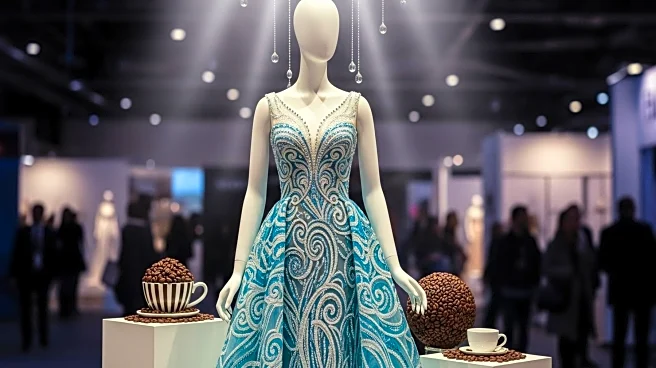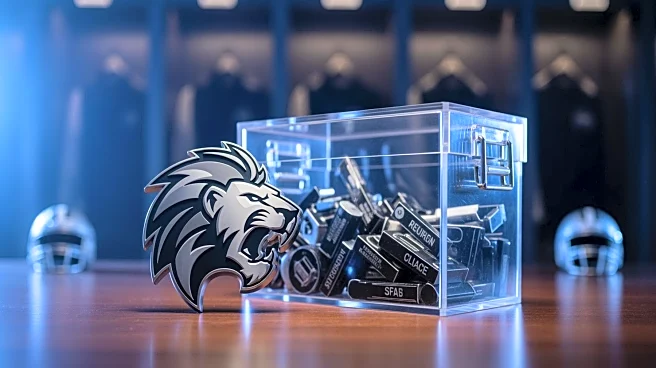What's Happening?
Starbucks is making a notable appearance at New York Fashion Week by sponsoring the Council of Fashion Designers of America event at the Rainbow Room in Rockefeller Center. The event features a Starbucks-inspired Siren dress designed by Zac Posen, worn by Nicole Kidman's daughter, Sunday Rose. The dress, in Starbucks' signature green, is part of a broader initiative by Starbucks to engage with the fashion industry. The event also includes a variety of Starbucks Reserve cocktails and new protein beverages set to launch on September 29. Starbucks' involvement in fashion is part of a larger strategy to expand its brand presence beyond coffee, with potential future collaborations in fashion, beauty, sports, and entertainment.
Why It's Important?
Starbucks' participation in New York Fashion Week signifies its strategic move to diversify its brand identity and engage with new consumer segments. By aligning with the fashion industry, Starbucks aims to enhance its cultural relevance and appeal to a broader audience. This initiative reflects a growing trend among major brands to integrate lifestyle elements into their offerings, potentially increasing brand loyalty and market share. The collaboration with high-profile designers and events could lead to new product lines and partnerships, expanding Starbucks' influence in sectors beyond its traditional coffee market.
What's Next?
While Starbucks has not disclosed specific future plans, its involvement in New York Fashion Week suggests potential upcoming collaborations and product launches in fashion and related industries. The brand's engagement with cultural programming, led by executive consultant Ana Andjelic, indicates a strategic focus on expanding its presence in creative sectors. Stakeholders in the fashion and retail industries may anticipate further announcements from Starbucks regarding new initiatives and partnerships that could redefine its brand image and market strategy.
Beyond the Headlines
Starbucks' venture into fashion highlights the evolving nature of brand identity in the modern marketplace, where companies increasingly seek to connect with consumers through lifestyle and cultural experiences. This approach may influence other brands to explore similar strategies, fostering innovation and cross-industry collaborations. The ethical and cultural implications of such moves could reshape consumer expectations and brand interactions, emphasizing creativity and self-expression as key components of brand engagement.











